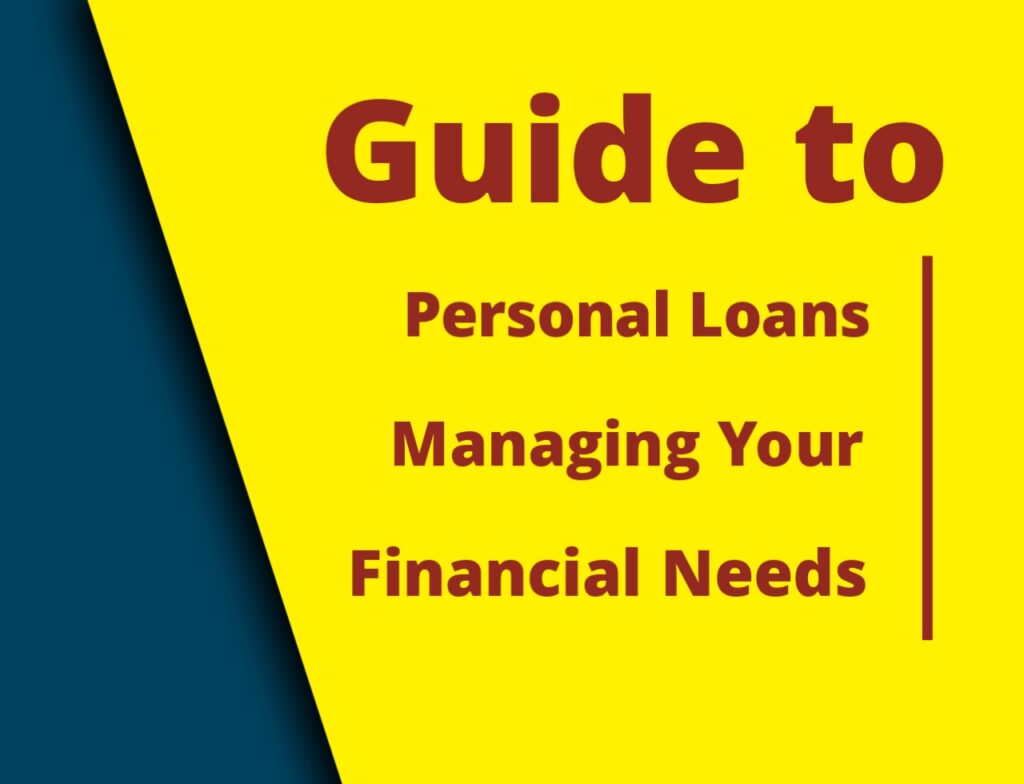
Personal Loans
Meta Description: Discover the world of personal loans in this comprehensive guide. Learn about their benefits, how they relate to health insurance, and essential tips for managing your finances wisely.
Are you facing a sudden financial need, whether it’s for medical expenses, education, or unexpected emergencies? Personal loans can be a valuable solution to help you bridge the gap between your financial requirements and your current resources. In this beginner’s guide, we’ll walk you through the ins and outs of personal loans, their advantages, how they interact with health insurance, and important tips for making informed decisions. Let’s dive in!
Introduction to Personal Loans
When life throws unexpected expenses your way, a personal loan can provide the financial assistance you need. Unlike specialized loans for specific purposes, personal loans are versatile and can be used for a variety of needs.
Understanding Personal Loans
A personal loan is a type of unsecured loan that doesn’t require collateral. Lenders evaluate your credit history and income to determine your eligibility and loan terms.
Benefits of Personal Loans
Personal loans offer flexibility, quick access to funds, and a fixed repayment plan. They are suitable for various purposes, from consolidating debt to covering medical bills.
How Personal Loans Differ from Credit Cards
While credit cards offer revolving credit, personal loans provide a lump sum that you repay in fixed installments, making it easier to plan your finances.

Personal Loans and Health Insurance
In times of medical emergencies, personal loans can supplement health insurance by covering immediate expenses that may not be fully covered by your insurance plan.
Types of Personal Loans
Explore different types of personal loans, such as secured and unsecured loans, as well as fixed-rate and variable-rate loans, each with its own set of features.
Factors to Consider Before Applying
Before applying for a personal loan, assess your financial situation, understand your credit score, and calculate how much you can comfortably repay each month.
The Application Process
Learn about the step-by-step process of applying for a personal loan, from gathering necessary documents to submitting your application.
Interest Rates and Fees
Understand how interest rates are calculated and the potential fees associated with personal loans, helping you avoid surprises down the road.
Loan Repayment
A structured repayment plan ensures you pay off your personal loan on time. Missing payments can negatively impact your credit score.
Pros and Cons of Personal Loans
Explore the advantages of personal loans, such as quick access to funds, alongside the potential disadvantages, including high-interest rates for those with poor credit.
Building Credit with Personal Loans
Responsible repayment of personal loans can positively impact your credit history, demonstrating your ability to manage debt.
Alternatives to Personal Loans
Consider other options like borrowing from friends or family, using a home equity loan, or tapping into your savings before opting for a personal loan.
Tips for Responsible Borrowing
Borrow only what you need, read the fine print, compare offers from different lenders, and have a clear repayment plan in place.
Avoiding Common Pitfalls
Watch out for predatory lenders, overly long loan terms, and hidden fees that can put you in a difficult financial situation.
Loan Prequalification vs. Preapproval
Understand the difference between prequalification and preapproval, which help you gauge your loan eligibility and potential terms.
Using Personal Loans for Education
Discover how personal loans can help you fund educational expenses, from tuition to textbooks and other study-related costs.
Using Personal Loans for Home Improvement
Learn how personal loans can be a convenient option to finance home improvement projects, adding value to your property.
Using Personal Loans for Debt Consolidation
Explore how personal loans can be used to consolidate high-interest debts into a single, manageable monthly payment.
Conclusion and Financial Empowerment
Personal loans can be valuable tools when used wisely, helping you navigate through unexpected financial challenges. By understanding their benefits, risks, and repayment responsibilities, you can make informed decisions that align with your long-term financial goals.
FAQs
Question 1: What is a personal loan?
Answer: A personal loan is a type of unsecured loan offered by banks, credit unions, or online lenders. It provides borrowers with a lump sum of money that can be used for various personal expenses, such as debt consolidation, home improvement, or emergencies. Unlike secured loans, personal loans don’t require collateral.
Question 2: How do personal loans work?
Answer: Personal loans work by lending you a fixed amount of money, which you repay in installments over a predetermined period, typically ranging from 1 to 7 years. Interest rates and terms vary based on your creditworthiness and the lender’s policies. Once approved, you receive the funds and make regular payments until the loan is fully repaid.
Question 3: What factors influence personal loan eligibility?
Answer: Lenders consider several factors for personal loan eligibility, including credit score, income, employment history, debt-to-income ratio, and any existing financial obligations. A higher credit score and stable income generally improve your chances of approval and may lead to better loan terms.
Question 4: What’s the difference between fixed and variable interest rates for personal loans?
Answer: A fixed interest rate remains constant throughout the loan term, providing predictable monthly payments. In contrast, a variable interest rate can change based on market fluctuations, potentially resulting in varying monthly payments. Fixed rates offer stability, while variable rates may come with lower initial rates that could increase over time.
Question 5: Can I get a personal loan with bad credit?
Answer: It’s possible to get a personal loan with bad credit, but your options may be limited. Lenders that specialize in bad credit loans might offer higher interest rates. Consider improving your credit score or exploring secured loan options to increase your chances of approval and secure more favorable terms.
Question 6: How does the application process for a personal loan work?
Answer: To apply for a personal loan, you typically need to fill out an online or physical application with your personal and financial details. Lenders will review your application, perform a credit check, and assess your eligibility. Once approved, you’ll receive loan offers outlining terms, interest rates, and repayment options.
Question 7: What’s the importance of the Annual Percentage Rate (APR) in personal loans?
Answer: The Annual Percentage Rate (APR) represents the total cost of borrowing, including both the interest rate and any fees associated with the loan. Comparing APRs allows you to gauge the true cost of different loan offers, helping you choose the most cost-effective option.
Question 8: Can I use a personal loan to consolidate debt?
Answer: Yes, personal loans are commonly used for debt consolidation. By taking out a personal loan, you can pay off multiple high-interest debts and consolidate them into a single monthly payment with a potentially lower interest rate. This can make managing debt more manageable and cost-effective.
Question 9: Are there any fees or penalties associated with personal loans?
Answer: Personal loans may come with fees such as origination fees, prepayment penalties, and late payment fees. It’s essential to carefully read the loan terms and understand the potential fees before accepting an offer. Some lenders, however, offer loans with no fees, so compare offers to find the best fit for your needs.
Question 10: How long does it take to receive funds after being approved for a personal loan?
Answer: The time it takes to receive funds after loan approval can vary. Some lenders offer quick funding, with funds deposited into your account within a few business days. Others might take longer, depending on their processing times and the required documentation. It’s recommended to inquire about the expected timeline during the application process.
Meta Description: Discover the world of personal loans in this comprehensive guide. Learn about their benefits, how they relate to health insurance, and essential tips for managing your finances wisely. Whether you’re facing medical bills or planning a home improvement project, this guide will empower you to make informed financial decisions.





